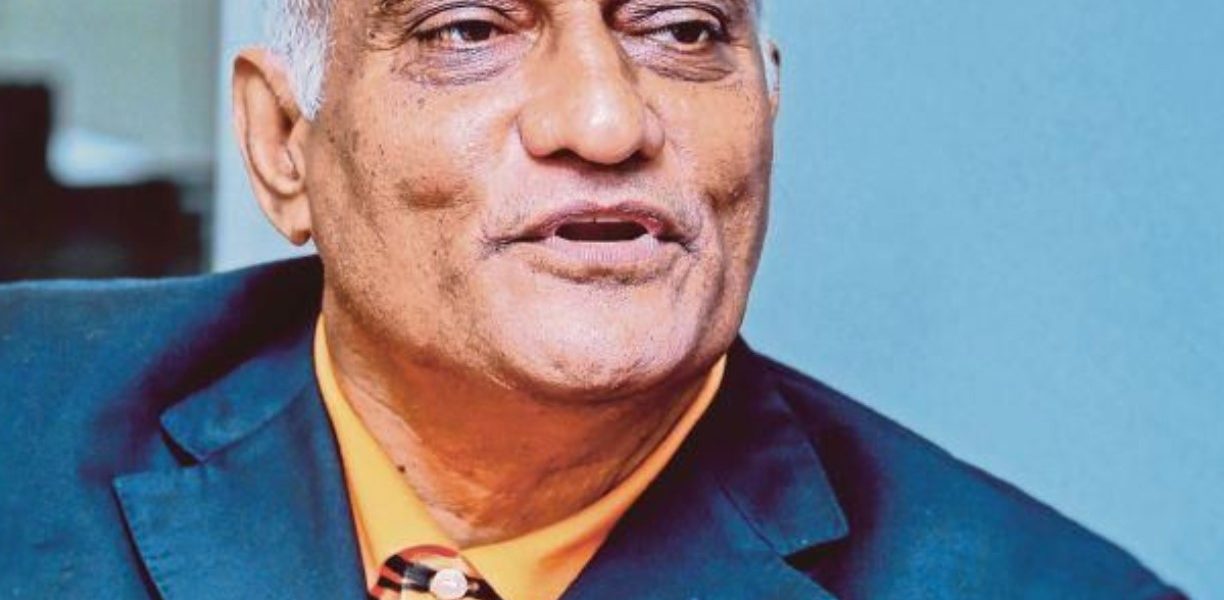THERE is a move to get national triple jump champion, R. Krithana to become a para-athlete due to her failing eyesight.
However, Perak Amateur Athletics Association (PAAA) president Karim Ibrahim has called for the authorities to provide extensive medical assistance for her before anything else.
Karim is puzzled over the hurry to get the 23-year-old from Bagan Serai to switch to para-athletics before every avenue to help her vision, has been exhausted.
He said the priority should be on improving Krithana’s eyesight and not for others to think about her in a situation to win medals in Paralympic competitions and get rewards.
Krithana’s eyesight has been deteriorating since 2017. And it led to her finishing seventh (she could not see the jumping board and had a few foul jumps) in December’s Sea Games in Philippines. She came in fifth in last year’s Asian championship in Doha with a distance of 13.33m.
“I urge the National Sport Council (NSC) and National Sports Institute (NSI) to do everything possible to help Krithana,” said Karim.
“Help her by sending her to specialists and see if her condition can be corrected or at least improved.
“She is a national athlete and NSC, NSI and even MAF (Malaysian Athletics Federation) should look into giving her the best possible medical help.
“If tests have been done, I would like to know what is her ‘real’ condition, and if there is anyway Perak AAA can help in further treatment.
“We will provide her with welfare assistance, as we understand that she lost her father two months ago. Her family has difficulties, as only her elder brother is employed.”
Krithana, when contacted by Timesport, confirmed that she is considering becoming a para athlete.
However, Krithana, a UPM mass communication undergraduate, said she has no knowledge of her actual condition and whether she will qualify as a para athlete.
“I had gone for a test after returning from the Philippines Sea Games, but went home in January as my father was ill (he later died) and I do not know the result of the test.
“I hope to get back my normal eye sight if possible or that it can be corrected.
“But as a last resort, I may have to consider being a para athlete if my condition worsens,” said Krithana, who is a contract navy personnel, as she runs for them.
Asked how she is coping with her studies amid vision problem, Krithana said: “I manage with contact lenses.”
Krithana’s coach, Ahmad Firdaus Salim revealed that the doctor who examined her, had said the athlete has uncorrected refractive errors – a condition where the eye is misshapen (not having natural form). Ahmad feels that she should compete as a para athlete.
Paralympic athletics head coach R. Jeganathan said he had been asked whether Krithana can compete as a para athlete.
“As a Paralympic coach, I will assist anyone who has a handicap but the athlete first has to be certified by the Paralympic Council, that he or she has a handicap,” he said.
“I hope the relevant bodies first test Krithana to ensure that her handicap is serious and cannot be corrected. I am here to assist her if that is her last resort.
“I was told that Krithana had gone for a test at the Kuala Lumpur General Hospital and she was said to be suffering from eye nerve problem.”
Jeganathan pointed out that several Paralympic athletes can till compete in able bodied athletics events. For example, national paralympians Muhammad Ziyad Zolkefli (shot putt) and Abdul Latiff Romly (long jump).
Dr S. Radha Krishnan, president of the Malaysian Blind Sports Association (MBSA) and deputy president of Paralympic Council of Malaysia (PCM), sympathises with Krithana but said she must first get herself tested by doctors of the International Paralympic Committee (IPC).
“Firstly, Krithana should get help to see if her condition can be reversed or made better.
“We are talking about deteriorating eyesight which affects a person’s life,” said Dr Radha.
“I can get one of the three certified doctors by IPC from Malaysia to test her.”
The three doctors are Dr Vijaya Menon and Geetha Ramakrishnan (both from Tun Hussein Onn Eye Hospital) and Datuk Dr Rokiah Omar (UKM).
To be eligible to compete in the Paralympic Games, the athletes must have at least one of the following diagnoses:
l Impairment of the eye structure.
l Impairment of the optic nerve or pathways.
l Impairment of the visual cortex of the brain.

